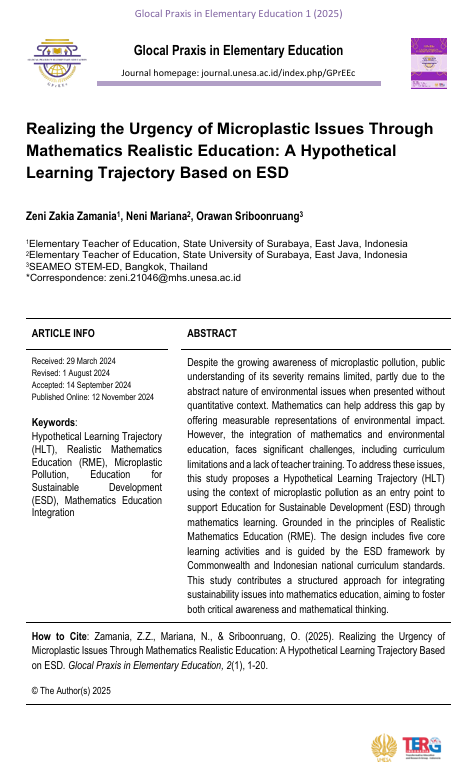Realizing the Urgency of Microplastic Issues Through Mathematics Realistic Education: A Hypothetical Learning Trajectory Based on ESD
Keywords:
Education for Sustainable Development, Realistic Mathematics Education, Hypothetical Learning TrajectoryAbstract
Despite the growing awareness of microplastic pollution, public understanding of its severity remains limited, partly due to the abstract nature of environmental issues when presented without quantitative context. Mathematics can help address this gap by offering measurable representations of environmental impact, thereby enhancing conceptual understanding. However, the integration of mathematics and environmental education, particularly in Indonesia, faces significant challenges, including curriculum limitations and a lack of teacher training. To address these issues, this study proposes a Hypothetical Learning Trajectory (HLT) using the context of microplastic pollution as an entry point to support Education for Sustainable Development (ESD) through mathematics learning. Grounded in the principles of Realistic Mathematics Education (RME), this research adopts the preparation phase of Design Research to develop a contextually relevant and pedagogically sound HLT. The design includes five core learning activities and is guided by the ESD framework by Commonwealth and Indonesian national curriculum standards. This study contributes a structured approach for integrating sustainability issues into mathematics education, aiming to foster both critical awareness and mathematical thinking.

Downloads
Published
Issue
Section
 Abstract views: 173
,
Abstract views: 173
, PDF Downloads: 152
PDF Downloads: 152

